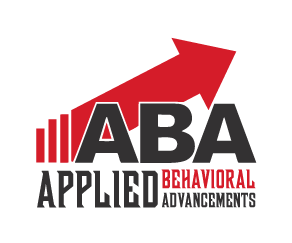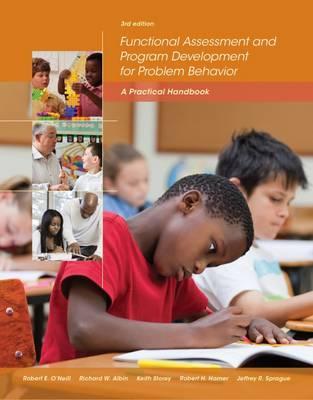Resources
About the Science of Applied Behavior Analysis
Applied Behavioral Advancements, LLC provides services based on the science of Applied Behavior Analysis which is defined as:
It uses direct observation and measurement of behavior and environment.
Science Links
For more information visit: http://www.bacb.com/ and http://abainternational.org
Interested in becoming a behavior analyst? Click here to find out more>>
The Data Says it All
As behavior analysts, we rely on data to make decision and believe that you should too!!
Every spring/summer we send satisfaction surveys to all of our clients, their guardians, and case managers asking them to rate our clinical services. The responses are anonymous, allowing those we serve to honestly express their opinions. Approximately 80% of case managers, and 1/3 of all guardians and clients return the anonymous surveys. The results are very exciting. Across all areas (clinical work/behavioral results, the behavior analyst/specialists’ interpersonal skills, and overall satisfaction), ABA received high ratings for each of the quality indicators. We are excited to share the results with you.
SUMMARY OF 2013 SURVEYS:
(469 Respondents)
96% of Clients, 98% of Case Managers, and 90% of Guardians strongly agreed or agreed with the following statement: “I am satisfied with the behavioral services I receive from ABA, LLC. (None disagreed or strongly disagreed)
SUMMARY OF 2012 SURVEYS:
(427 Respondents)
SUMMARY OF 2011 SURVEYS:
(331 Respondents)
SUMMARY OF 2010 SURVEYS:
(206 Respondents)
SUMMARY OF 2009 SURVEYS:
(143 Respondents)
SUMMARY OF 2009 SURVEYS:
(143 Respondents)
“I would recommend ABA, llc services to others”
Showing a 5 year average of responses noting ‘Agree’ or ‘Strongly Agree’
%
case managers
%
guardians
%
Clients
“The behavior specialist listens to concerns.”
Showing a 5 year average of responses noting ‘Agree’ or ‘Strongly Agree’
- Case Managers 94%
- Guardians 98%
- Clients 90%
READINGS
APPLIED BEHAVIOR ANALYSIS (2nd Edition)
Cooper, Heron, and Heward
Applied Behavior Analysis provides a complete description of the principles and procedures needed to systematically change socially significant behavior and to understand the reasons for that change. This comprehensive text, appropriate for courses in basic principles, applications, and behavioral research methods, helps students, educators, and practitioners appreciate and begin to acquire the conceptual and technical skills necessary to foster socially adaptive behavior in diverse individual
The second edition includes:
- More than 1,000 citations to primary-source literature, including both classic and contemporary studies
- A glossary of more than 250 technical terms and concepts
- More than 100 graphs displaying original data from peer-reviewed research, often accompanied by detailed descriptions of the procedures used to collect the data represented
- Five new chapters written by leading scholars in behavior analysis: Negative Reinforcement (Brian Iwata and Richard Smith), Motivating Operations (Jack Michael), Functional Behavior Assessment (Nancy Neef and Stephanie Peterson), Verbal Behavior (Mark Sundberg), and Ethical Considerations for Applied Behavior Analysts (Jose Martinez-Diaz, Tom Freeman, and Matthew Normand)
- The Behavior Analyst Certification Board® BCBA® and BCABA® Behavior Analyst Task List, Third Edition, specifying the minimum content all behavior analysts should master, is listed on the inside front and back covers. A chart at the beginning of each chapter identifies which items from the Task List are covered in that chapter, and an appendix lists the page numbers where the concepts, principles, or procedures related to each item appear on the Task List.
COERCION AND ITS FALLOUT (Revised Edition)
Murray Sidman
Murray Sidman is undoubtedly one of the most influencial of the applied behavior analysts. In Coercion and its Fallout, he provides the most in-depth discussion yet regarding the unanticipated and unfortunate side effects of the use of aversive stimuli (punishers).
ANATOMY OF AN EPIDEMIC: MAGIC BULLETS, PSYCHIATRIC DRUGS, AND THE ASTONISHING RISE OF MENTAL ILLNESS IN AMERICA
Robert Whitaker
*Starred Review* When Whitaker (Mad in America, 2002) learned that between 1987 and 2007 the number of Americans disabled due to mental illness more than doubled despite a whopping $40 billion annual psychotropic drug tab, it gave him pause. Given their widespread use—greater than even that of cholesterol-lowering drugs—he had believed that psychopharmaceuticals were magic bullets, knocking mental illness out of the game, returning formerly disabled people to the ranks of productive citizens. But the deeper he probed into clinical studies in prestigious scientific journals, some dating back more than 50 years, the more he noticed a shocking anomaly. Psychiatric drugs have repeatedly been shown to worsen mental illness, to say nothing of the risks of liver damage, weight gain, elevated cholesterol and blood sugar, and reduced cognitive function they entail. The reality, he says, is that, because no one knows what causes mental illness, there’s no cure or palliation to be found in these pills. What with the conclusions Whitaker draws from his assembled literature and the accusations he levels at those who consciously deceive consumers eager for magical cures, his book will either blow the lid off a multibillion-dollar industry or cause him to be labeled a crackpot and, perhaps, medicated into obscurity. At the very least, it should prod those who take the drugs to question those who prescribe them. –Donna Chavez
FUNCTIONAL ASSESSMENT AND PROGRAM DEVELOPMENT FOR PROBLEM BEHAVIOR: A PRACTICAL HANDBOOK
O’Neill, Horner, Albin, Storey, and Sprague
This new edition of the authors guide to functional assessment procedures includes a variety of strategies for assessing problem behavior situations, and presents a systematic approach for designing behavioral support programs based on those assessments. Professionals and students alike will appreciate the way the authors help readers learn to conduct functional assessments and develop their own intervention programs.




